Research Brew & Exchange Café
When and Where
Speakers
Description
Latin American Studies is pleased to invite you to the third event of our "Research Brew & Exchange Café" series, dedicated to the exploration of research related to Latin America. Here, graduate students will present their ongoing projects, providing you with a firsthand look at the incredible depth and diversity of research related to Latin America and its diasporas taking place right here, at the University of Toronto.
We welcome Andrés Lalama Vargas from the Department of History and Joshua Lim from OISE.
Street Vendors, Hygiene, and the Struggle over Public Space in Quito, Ecuador, in the Mid 20th Century
About the Presentation:
This paper is part of a larger, ongoing doctoral dissertation project on the physical and environmental, social, and symbolic spaces located at the margins of the city of Quito, Ecuador, in the early to mid 20th century, 1930 to 1970. In this era, most of Latin America's nation states consolidated their power and strengthened their institutions, but this was a slow, ambiguous, and messy process at the city level. In Quito, as in other cities throughout the region and beyond, this was a time when the traditional patterns of urban life and growth were left behind. It surpassed the longstanding boundaries of the Spanish-colonial era, not just in terms of urban sprawl but in the patterns of social relations between people of different socioeconomic and ethnic / racial backgrounds. One example of this was the relationship between the municipal government and the city's many street vendors, especially those who sold different types of food. Under the pretext of hygiene and so-called "ornato", authorities tried to prevent and control these vendors’ presence in streets and public spaces. Through analysis of papers of the municipal police that speak of these conflicts and interactions, I aim to show that the process of modernization of the city in the 20th century included the dispute for spaces and the public sphere in a literal, legal, and ideological sense. Furthermore, it necessitated such a group in order to advance the local and the larger establishment's ideas of hygiene, education, and urban design.
About the Presenter:
Andrés Lalama Vargas is in the fifth year of the PhD program in the Department of History at the University of Toronto. His research interests include Latin American and urban history, especially in the 19th and 20th centuries. He is primarily interested in the historic production of urban and semi-urban spaces. He is also co-editor of Past Tense Graduate Review of History, a student-led, peer reviewed journal hosted at our university.
Exploring Pedagogies for Disadvantaged, Indigenous, and Imprisoned Children in Bolivia
About the Presentation:
The aim of my research is to further educational understanding for supporting countries in the Global South. To address this aim, I propose to examine two alternative education programs for vulnerable populations in Bolivia characterised by poverty, Indigeneity, and criminality: the Casa de la Amistad (CDLA) and Organización para le Educación y Servicio a la Comunidad (OESER). Bolivia is an innately interesting context: it is the poorest country in South America, has one of the highest income inequalities in Latin America, is culturally and linguistically diverse, having one of the highest Indigenous populations in Latin America, and is the third-largest producer of coca, a precursor to cocaine, leading to high incarceration rates mainly for female participants from the peasant class. Bolivia has attempted to address its societal issues undergoing two comprehensive and contrasting changes, including education reforms in 1994 and 2010 meant to improve disparities between non-Indigenous and Indigenous Bolivians. The latter reform occurred under Evo Morales, Latin America’s first Indigenous President, and a climate of anti-globalization and anti-neo-liberalism. Despite the reforms, there remain significant educational gaps.
About the Presenter:
Joshua Lim comes from a family of teachers and people who are committed to social justice. In his youth, he accompanied his parents on volunteer opportunities supporting a First Nations community and incarcerated people. He is an Occasional Teacher in the Toronto District School Board and an Officer in the Canadian Army Reserves. He completed his M.A. in Child Study and Education (2021) and M.Ed. in Curriculum and Pedagogy (2022) at OISE. He is currently a second-year student in the Ph.D. in Curriculum and Pedagogy program with a specialization in Comparative, International, and Development Education.


